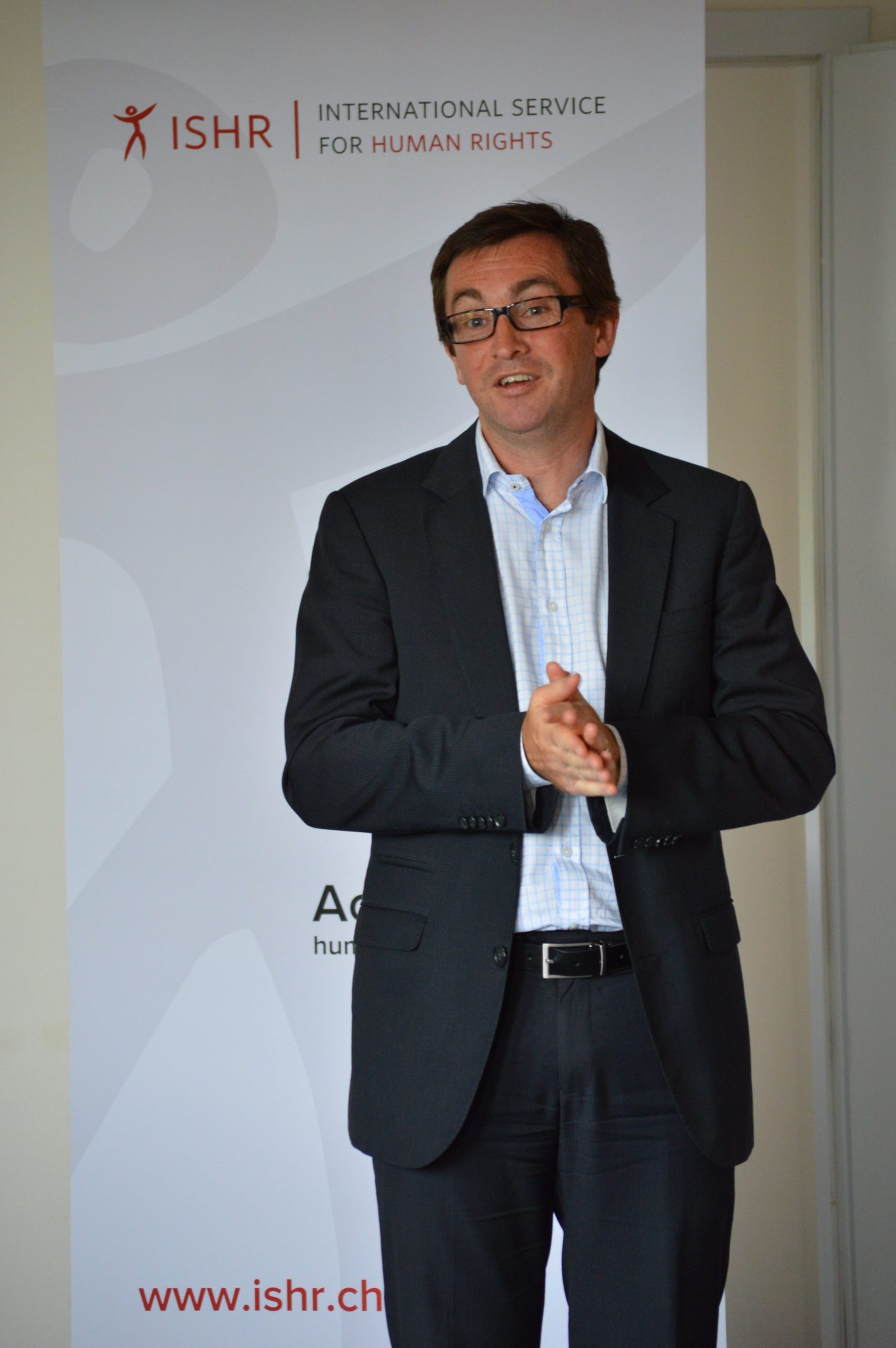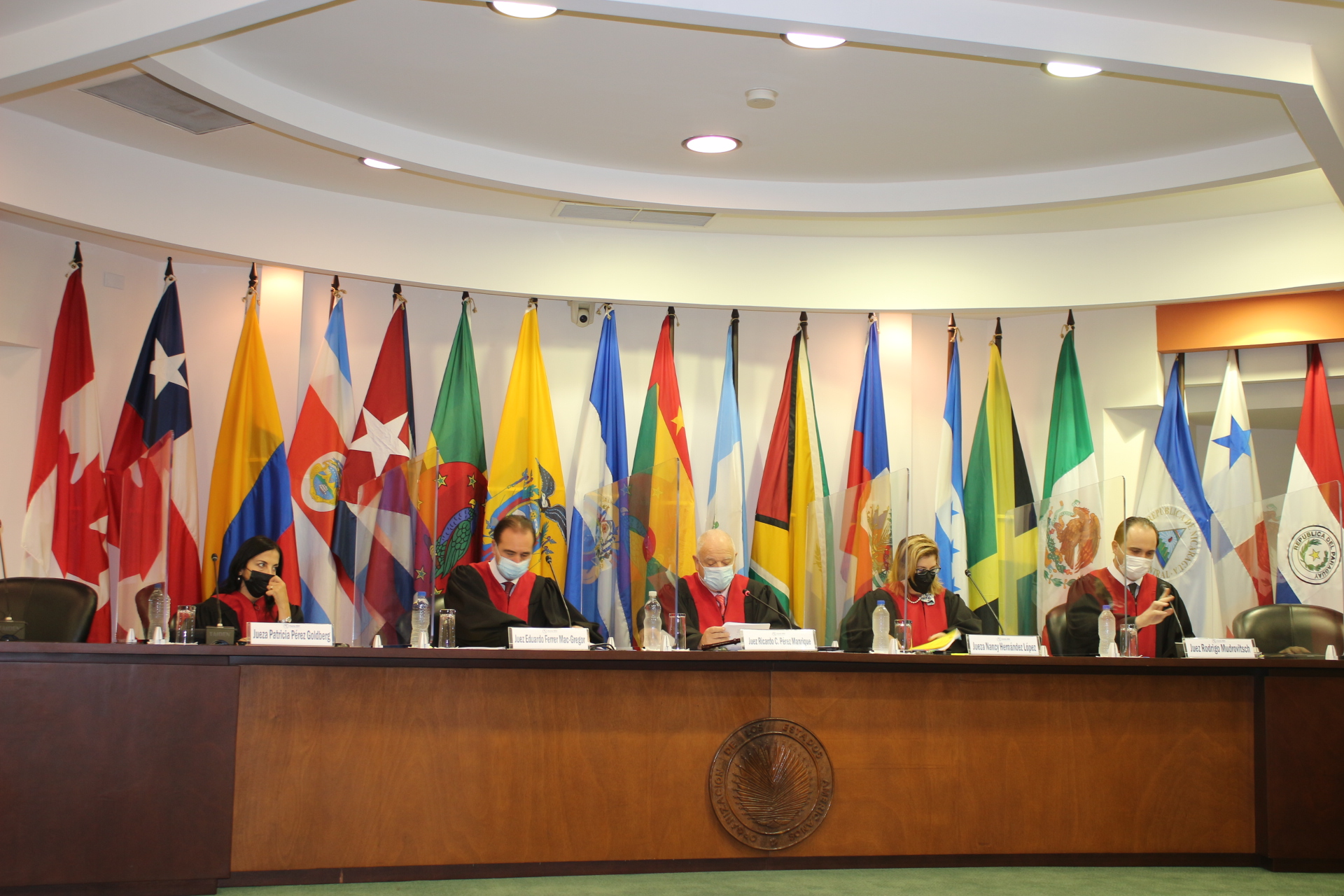By Phil Lynch, Director, International Service for Human Rights
Human rights defenders, independent non-governmental organisations, and A-status national human rights institutions all have a vital role to play in the prevention of gross and systematic human rights violations. This is a role that they should be better supported and enabled to play, both on the ground and at the UN Human Rights Council, where the experience and expertise of defenders can contribute significantly to early warning of, and early and effective response to, human rights crises and emergencies.
The obligation of States to prevent human rights violations by protecting and supporting human rights defenders
The Human Rights Council has explicitly recognised the central role of NHRIs, NGOs and human rights defenders in the prevention of human rights violations and the duties of States in this regard. Specifically, HRC Resolution 24/16, adopted by consensus in September 2013, stresses that:
States should promote supportive and enabling environments for the prevention of human rights violations, including, inter alia, by: …
(g) Promoting a free and active civil society;
(h) Promoting freedom of opinion and expression;
(i) Ensuring, where they exist, strong and independent national human rights institutions, in accordance with the principles relating to the status of national institutions for the promotion and protection of human rights (the Paris Principles);
The contribution of defenders and NHRIs to prevention was further elaborated in a 2015 report by the Office of the High Commissioner for Human Rights (A/HRC/30/20), which recognises the importance to prevention of defenders’ work to monitor, report and advise on human rights issues and violations. The report particularly highlights the preventative contribution that NGOs and NHRIs can make by engaging with regional and international human rights reporting mechanisms, and by ‘bringing cases at the national, regional or international level’.
In order for defenders, NGOs and NHRIs to fulfil these functions the OHCHR report recommends a number of actions for States at the national level.
First, States should establish strong, independent NHRIs in compliance with the Paris Principles.
Second, States should develop and implement laws, policies and mechanisms which enable, support and protect the work of defenders and NGOs, including those most at risk, such as women defenders.
Third, States should investigate and ensure accountability for violations against defenders and end impunity for attacks against them.
Fourth, States should guarantee safe and unhindered access to international human rights mechanisms and prohibit, prevent and promote accountability for intimidation and reprisals against those who communicate or cooperate with national, regional or international human rights bodies.
Early warning: The role and relevance of defenders
The relationship between civil society and early warning of gross and systematic human rights violations, emergencies and crises has two key facets.
First, human rights defenders, independent NGOs, Paris Principle compliant NHRIs and a free press have a crucial role to play in monitoring and reporting on human rights issues. These actors are often at the frontline and the first (and sometimes only) actors to observe, document and sound the alarm on emerging patterns of gross and systematic violations or human rights crises. As former High Commissioner Navi Pillay said in one of her final addresses to the Human Rights Council, ‘Human rights defenders inject the life blood into human rights: they are the promoters of change, the people who ring the alarm about abuse, poor legislation and creeping authoritarianism.’
Second, restrictions, criminalisation and crackdowns against human rights defenders are themselves an early warning sign of gross and systematic violations, with authoritarian governments, paramilitaries and terrorist organisations frequently moving to silence or even eliminate those who may bear witness and hold them to account. In this regard, the Human Rights Council should look to develop an early warning indicator based on the situation of defenders and other civil society actors. Proposed Sustainable Development Goals indicator 16.10.1 is instructive in this regard, calling for monitoring and reporting on the ‘number of verified cases of killing, kidnapping, enforced disappearance, arbitrary detention and torture of journalists, media personnel, trade unionists and human rights advocates in the previous 12 months’.
Both of the facets outlined above – defenders as monitors and as canaries – have been paradigmatically evident in Burundi, where NGOs like the East and Horn of Africa Human Rights Defenders Project and ISHR produced reports and made statements warning of looming gross and systematic violations months before any attention by the international system. These warning were informed, at least in part, by the evidence of worsening restrictions and attacks on Burundian human rights defenders and their families, such as the arbitrary detention and attempted murder of Pierre Claver Mbonimpa and, later, the actual murder of his son. As ISHR said during an informal briefing of the Human Rights Council by the High Commissioner in May 2015:
There is a strong association between respect for civil society actors and respect for human rights and the rule of law. By contrast, there is also a strong association between restrictions and attacks against human rights defenders and serious regression in the realisation of human rights and the rule of law. In this context, ISHR is gravely concerned at the recent wave of assaults and arrests against human rights defenders in Burundi, including the assault and arbitrary detention of Pierre Claver Mbonimpa, together with the excessive use of force against peaceful protesters and the closure of independent media outlets.
During that briefing ISHR called on the Council to take ‘urgent and resolute action to restore respect for human rights and the rule of law in Burundi’, a call finally heeded some six months later when the Council convened a Special Session on the situation in December 2015.
A full twelve months before the Special Session, in November 2014, the Special Rapporteur on Human Rights Defenders undertook a country mission to Burundi. His report documented defamation, attacks and killing of human rights defenders, together with worsening legislative restrictions on their work, all ‘classic’ early warning signs. Due to its programme of work, this report was not considered by the Council until March 2016. There must be a mechanism for the Council to expedite the consideration of reports of country missions which disclose or warn of imminent widespread violations.
Early and effective response: The need for principled leadership and triggers for action at the Human Rights Council
As the evolution of the situation in Burundi clearly demonstrates, prevention requires both early warning and an effective response. In many cases prevention fails not for lack of early warning but for lack of early, effective, or any, response. Indeed, as the Universal Rights Group has stated in an instructive background paper, ‘if progress is to be made with prevention, it will be necessary [for the Human Rights Council] to build a response framework driven by independent and objective analyses of human rights situations’.
The work of defenders, NGOs and NHRIs is central to this project and I’d like to make three brief points in this regard.
First, many independent NGOs and A-status NHRIs produce such ‘independent and objective’ and evidence-based analyses. In many situations, they are the only actors on the ground producing such analysis and it is vital that they be supported and not impeded in doing so.
Second, if the Council is to benefit from such reports, evidence and analyses, it must be a safe and accessible place for the defenders, NGOs and NHRIs who produce them and the victims whose testimonies are contained therein. This requires greater space for substantive engagement and contributions by civil society, together with stronger and more effective policies and mechanisms to prevent, respond to and promote accountability for reprisals. Such mechanisms should include the designation or appointment by the Secretary-General of a Special Representative or senior focal point to coordinate and strengthen the response to reprisals across the UN system.
Third, and finally, while the 2011 review of the Human Rights Council regrettably failed to agree on or institutionalise triggers for action, the occasion of the Council’s tenth anniversary is an opportunity for principled States to come together to develop and implement a joint pledge in this regard. Such a pledge could commit signatory States to request a special session of the Council, or to commence work on a situation- or country-specific initiative, in situations that meet a certain threshold, or are referred to the Council by independent actors. Such triggers could include, for example:
- the High Commissioner for Human Rights suggesting Council action;
- a group of four or more Special Procedures mandate holders suggesting Council action;
- relevant regional mechanisms flagging a situation as requiring the Council’s attention;
- the General Assembly or the Security Council flagging a situation as requiring the Council’s attention; or
- a group comprising a State’s A-status NHRI, together with three or more ECOSOC-accredited NGOs, suggesting Council action.
Implemented effectively, such an initiative could substantially strengthen the Council’s ability and track record when it comes to fulfilling its own mandate, spelt out in operative paragraph 5(f) of General Assembly Resolution 60/251, to contribute to the ‘prevention of human rights violations and respond promptly to human rights emergencies’.
We owe it to the likes of Pierre Claver Mbonimpa, and the scores of other defenders who have been arbitrarily detained, disappeared or died, to at least try.
Phil Lynch is Director of the International Service for Human Rights. Follow him on Twitter at @PhilALynch.




